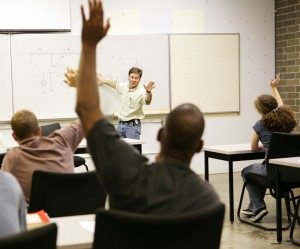Training Aids and Facilities Planning
A professional’s need for training aids and facilities does not end after the completion of his/her education years. Today continuing education is very important to maintain and enhance one’s skills and knowledge. While most companies and organizations require continue education for expert certification, individuals may pursue education to achieve their personal and professional goals. However, other than education, training also improves ones’ personality, skills and knowledge.
Here are some of the main characteristics that training aids and facilities should have:
BUILDING ATTRIBUTES
A training facility should have flexible and an advanced learning atmosphere that is safe, healthy and comfortable for all. It must be able to provide the space and equipment needs of the training program.
FLEXIBILITY
In many organizations training facilities programs are conducted very frequently. Furthermore, trainers should have diverse and progressing training approaches. As such, flexibility in the building’s plan is important for the success of a long-term training program.

TECHNOLOGICAL CONNECTIVITY
Technology has become a necessary tool for business, trade, and training. Hence, many training programs are especially planned to improve a trainee’s capability with new equipment and technologies. In some cases, technology has also transformed the way to deliver instructions: from live trainer-led programs to self-directed learning and training programs. As a result, distance learning using telecommunication tools such as Internet, satellites, and videotapes, is very common. Thus, letting learners across the globe to apply in the courses that are distant from the point of training.
SIGNAGE
Signage helps to encourage an efficient training atmosphere for the trainees that are new to the training. It must comprise of plans of activities and clear description of classroom spaces.


